Leah Pistorius
April 24, 2025
For over a decade, the University of Washington’s Department of Human Centered Design & Engineering (HCDE) has been fostering meaningful connections with young learners across Washington State through its K-12 outreach program.
The program was started in 2013 by Andrew Davidson, a now retired associate teaching professor from HCDE, and paused in 2020 due to the COVID-19 pandemic. Dr. Arpita, assistant teaching professor, has led the program's re-launch since 2023, mentoring HCDE students in their engagement with over 350 elementary, middle, and high school students through hands-on workshops and tailored learning experiences. This outreach not only introduces young learners to the principles of human-centered design, it also helps HCDE students grow as community-engaged designers, mentors, and problem-solvers.
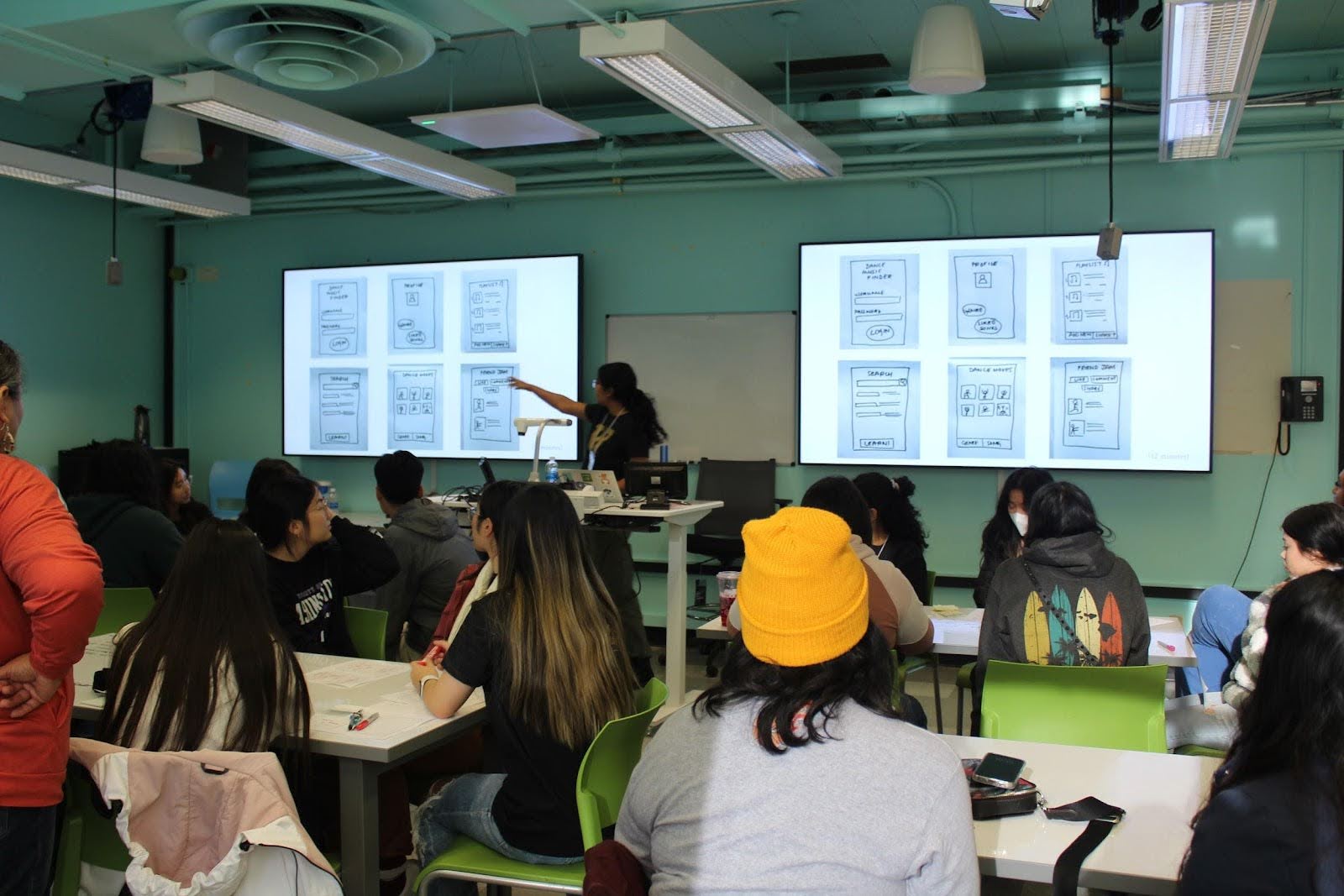
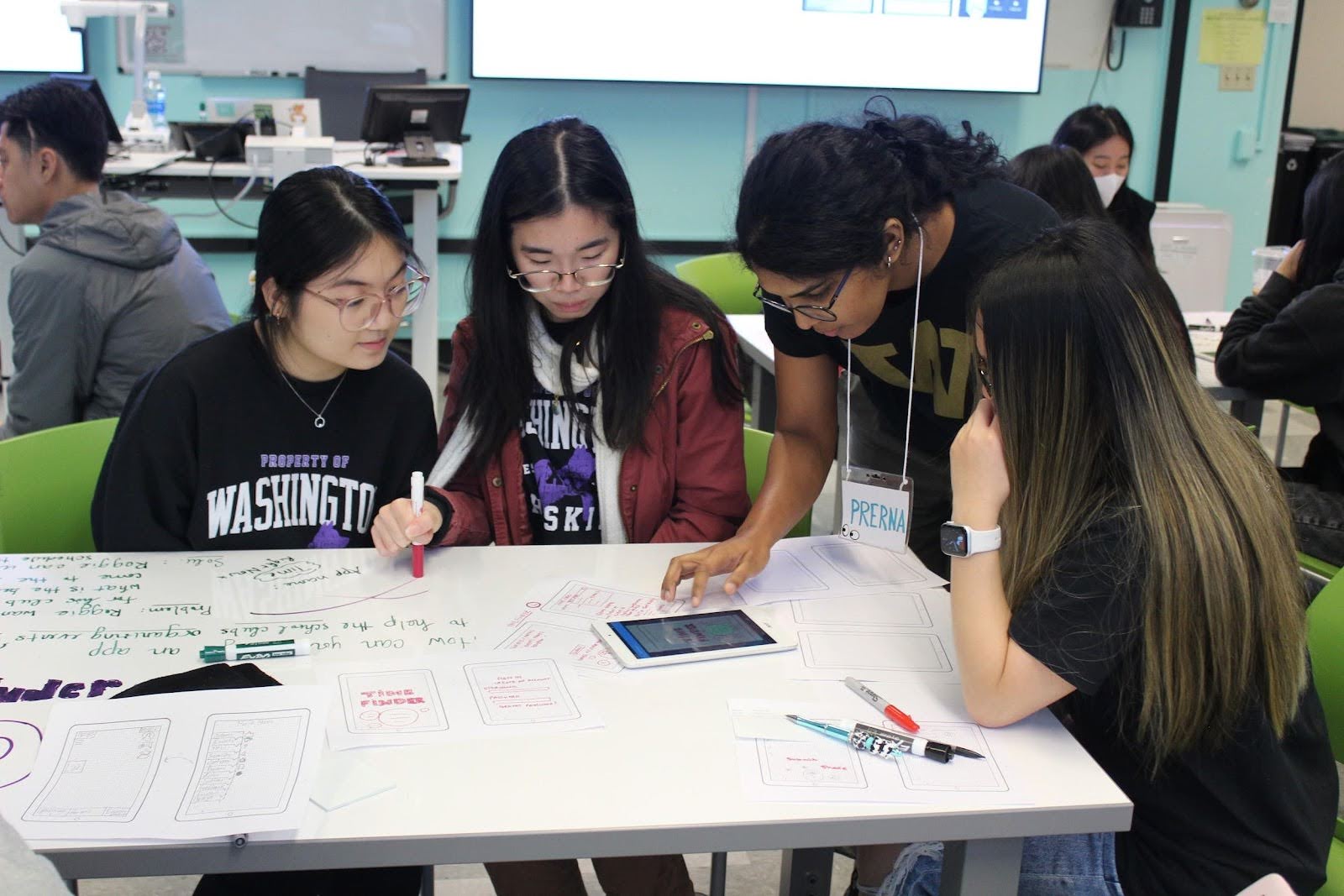
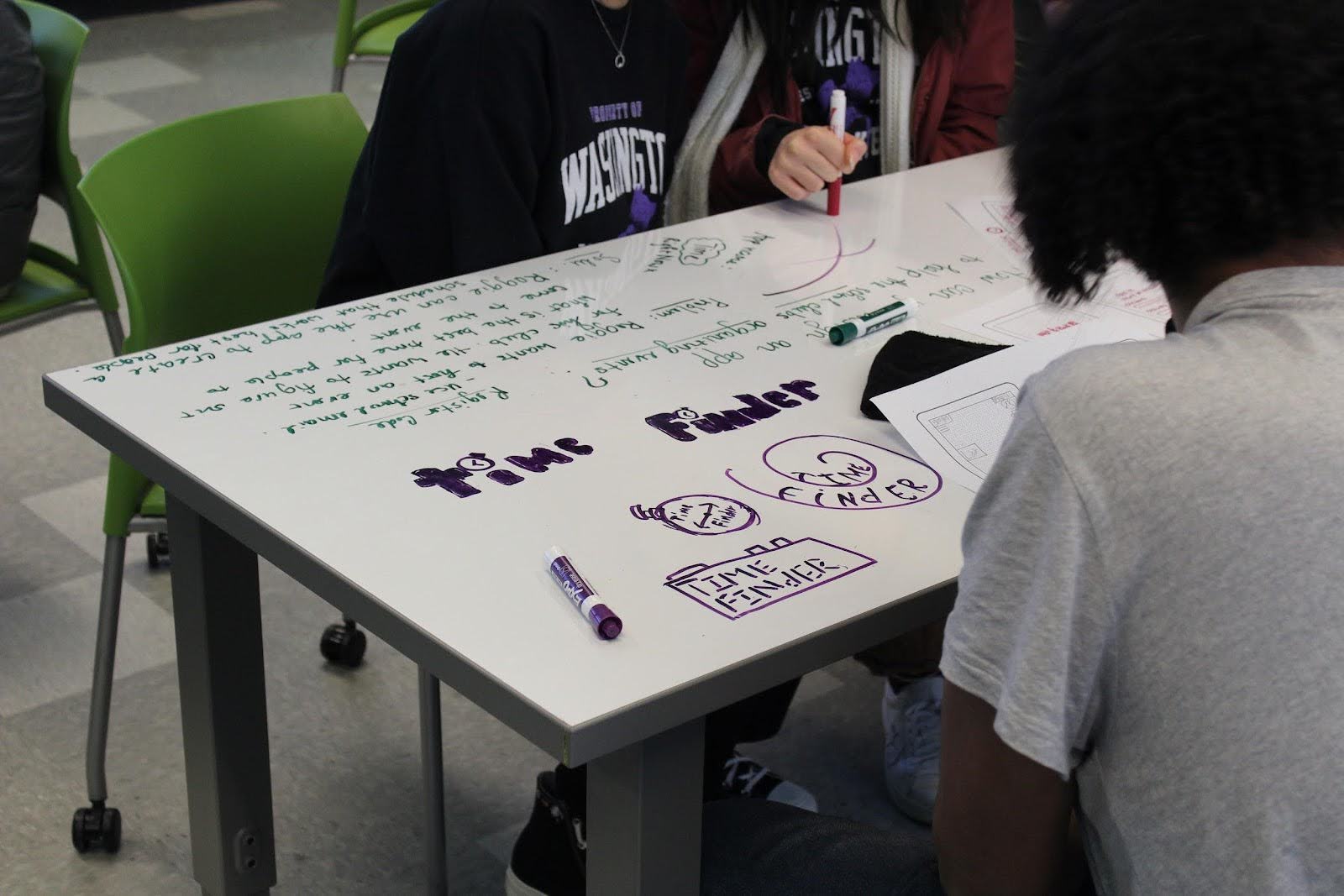
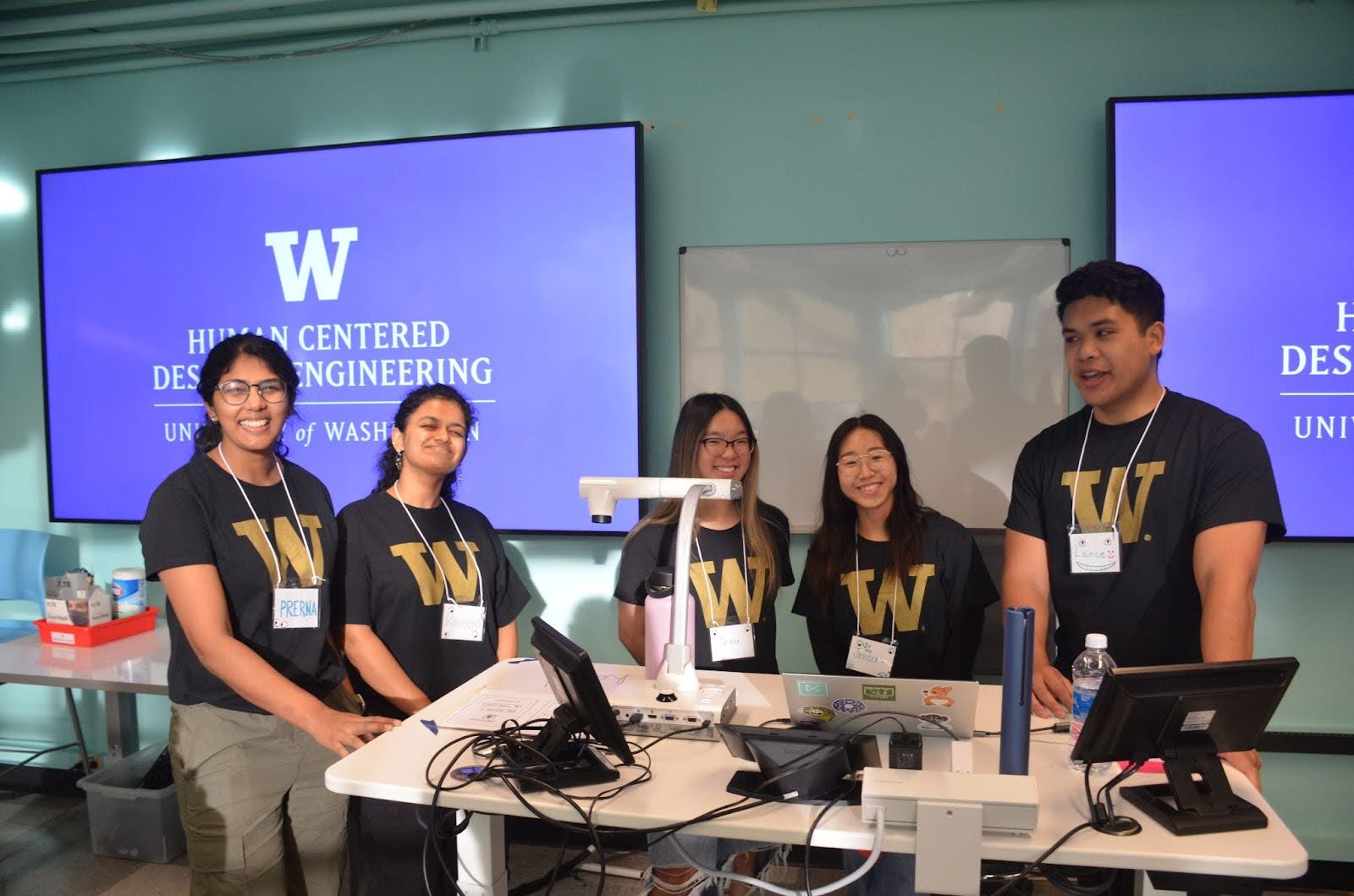
Photos from an HCDE workshop during a campus visit organized by the UW CELE Center for the Culture and Science Exchange (CASE)–Yakama program with middle school and undergraduate students.
The HCDE team included Prerna Rao, Raveena Dhegaskar, Grace Bunarto, Jessica Zhang, and Lance Garcia.
Building connections through school visits and community partnerships
Through the K-12 outreach program, HCDE undergraduate and master’s students conduct a range of outreach activities to engage with younger students. They visit Washington public schools and conduct workshops leading students through design scenarios such as designing with tablet apps, visual design, and physical prototyping. At Seattle World School, in partnership with Richard Parra and Alison Horn at UW Riverways, they’ve led multilingual design sessions to engage students from diverse backgrounds.
HCDE teams have also worked with community colleges, summer camps, Seattle Public Libraries, and youth programs. This includes a design crash course in the Shoreline Community College’s introductory computer science program, where Davidson taught in 2024.
Through a partnership with the UW Riverways Education Partnerships program, HCDE students have participated in Alternative Spring Break experiences at Neah Bay High School on the Makah Reservation in Washington’s Olympic Peninsula. In 2025, they returned for the fifth year to lead a week-long course taking high school students through the full human-centered design process—from defining a problem to brainstorming, creating user personas, ideating, and prototyping solutions.
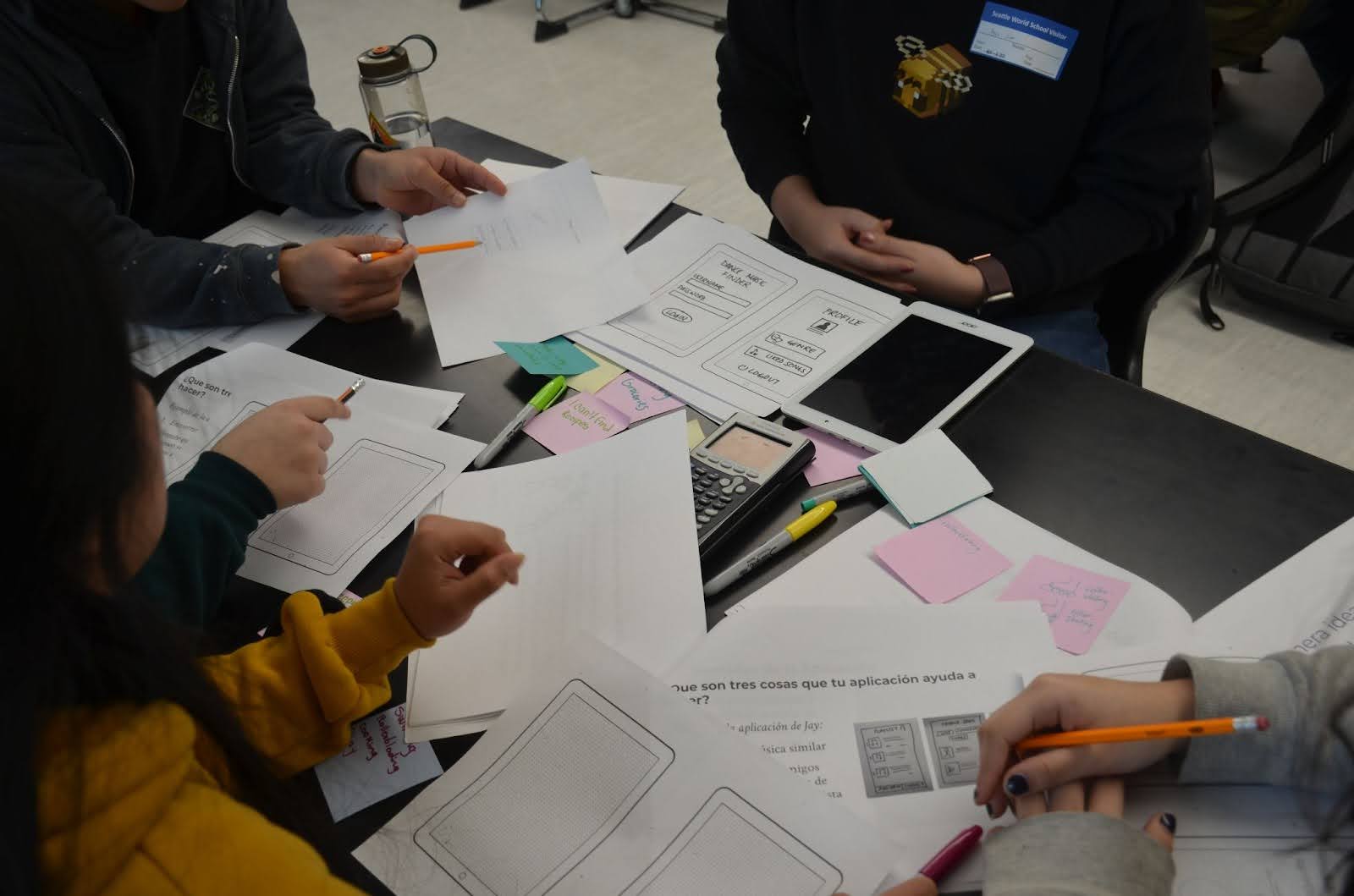
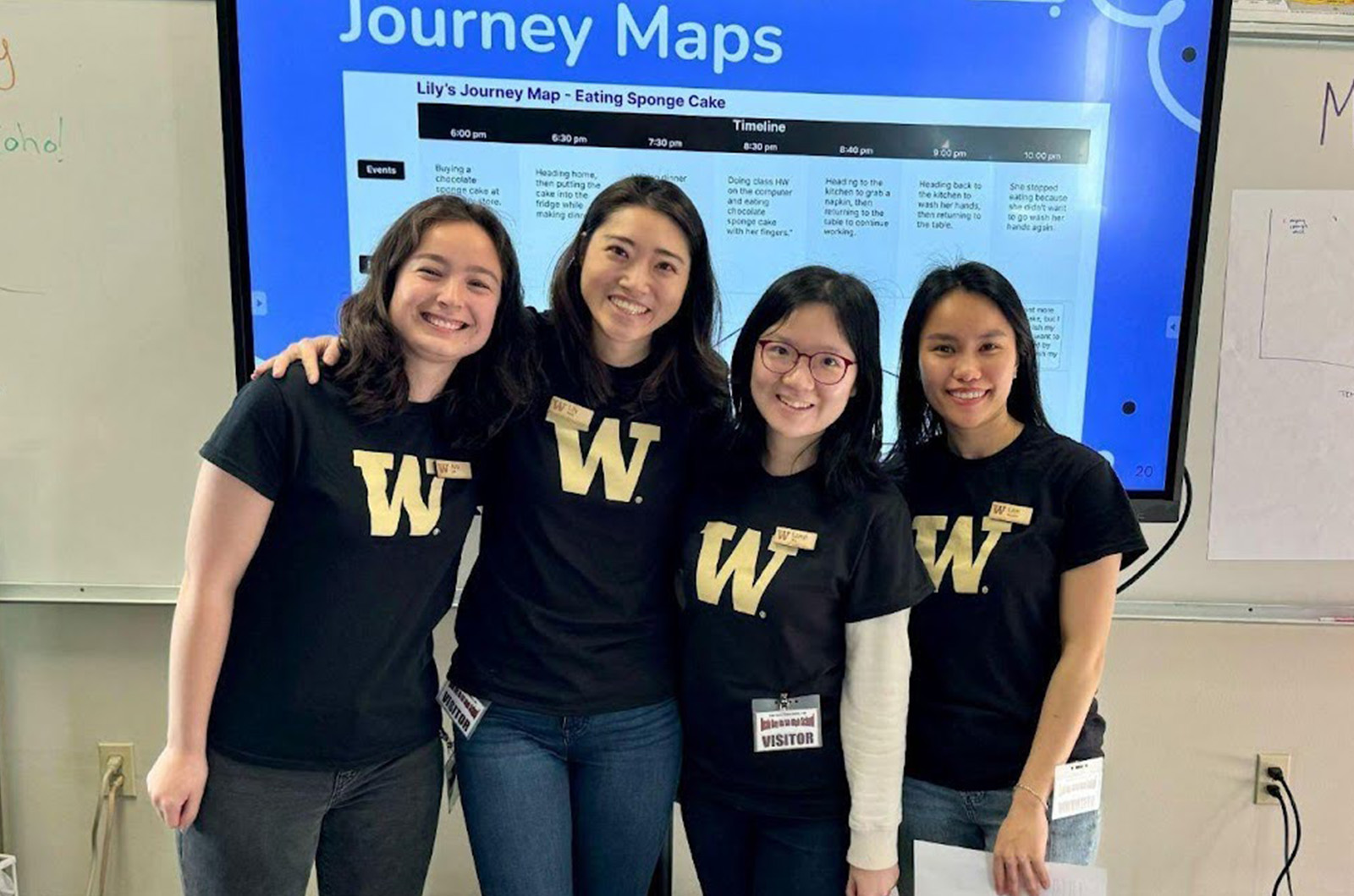
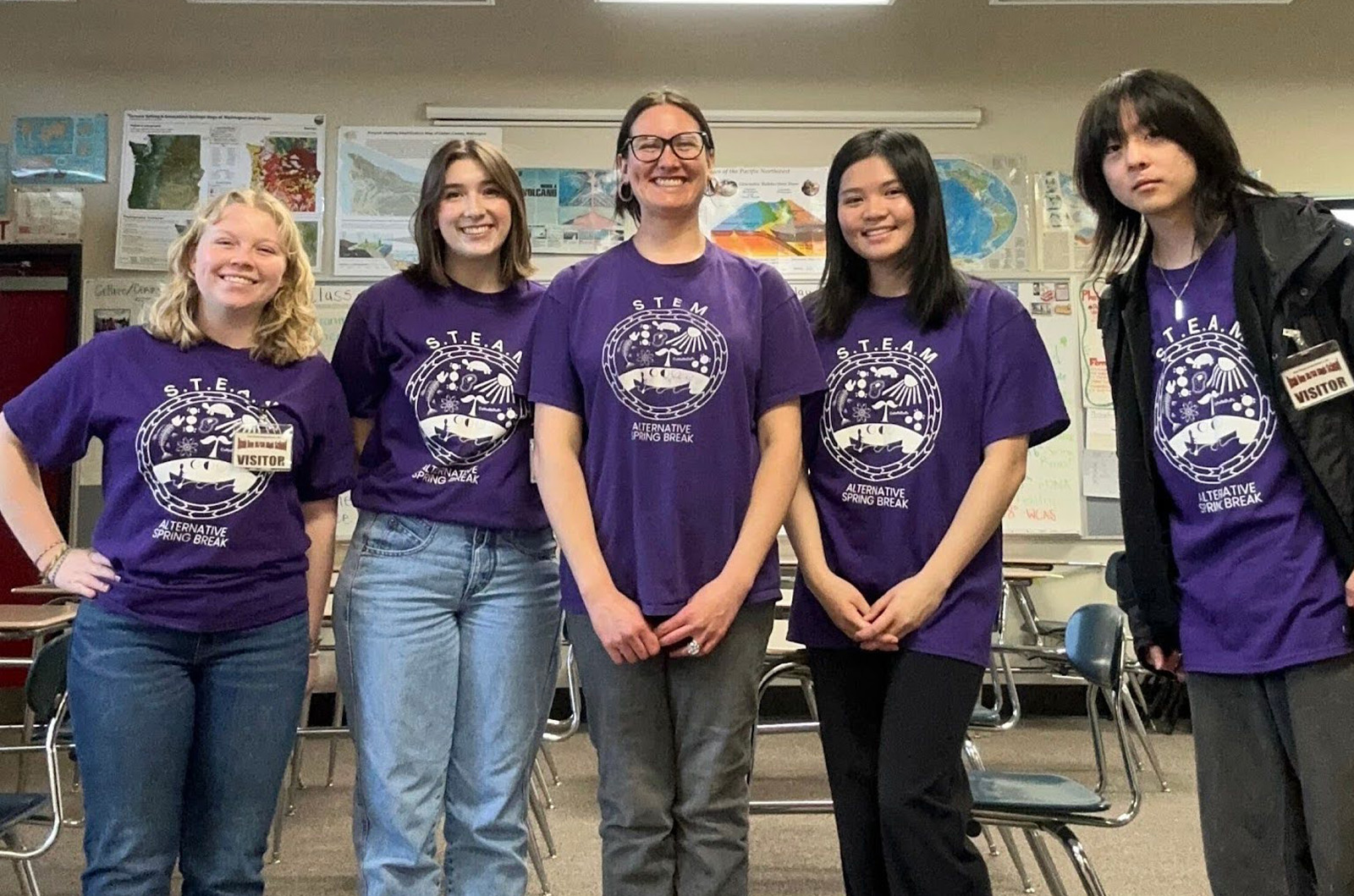
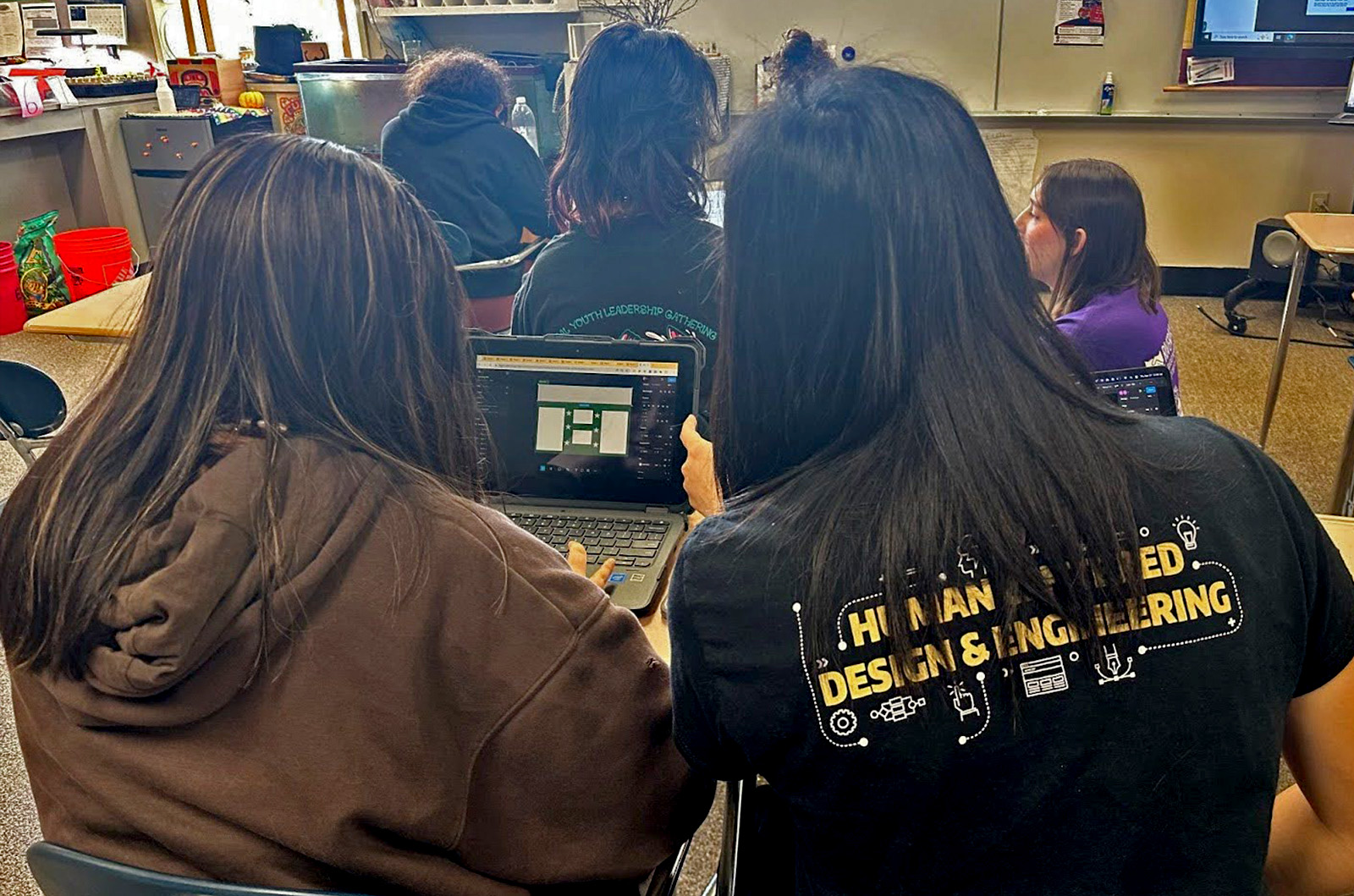
Photos from workshops at Seattle World School and Alternative Spring Break in Neah Bay High School in 2024 and 2025. The HCDE student team in 2024 included Lily Yang, Ava Lim, Lien Nguyen, and Lanyi Zhu.
In 2025, HCDE team included Tinh Lou, Savannah Hupp, Sophie Messer, and Jun Koh along with Neah Bay High school teacher, Holly Keedy.
This consistent, tailored outreach builds lasting relationships with schools and equips students with tools to address real-world problems. Many students, especially those from communities where students are not introduced to design or coding classes yet, are discovering how engineering can be used to solve problems meaningful to them.
Creating opportunities for service learning and mentorship
For HCDE students, the outreach program offers more than just a teaching opportunity; it’s a service learning experience about working with people from different backgrounds and building solutions together. Students practice what they’ve learned in their HCDE courses about how to listen, ask questions, and understand the culture and unique needs of the communities they visit.
At the heart of HCDE's K-12 outreach program is its own human-centered design challenge: HCDE students are tasked with designing the curriculum to meet the specific needs of each school, student age groups, and cultures. In partnership with K-12 teachers, they tailor each session to align with what the younger students are learning in their schools and experiencing in their lives.
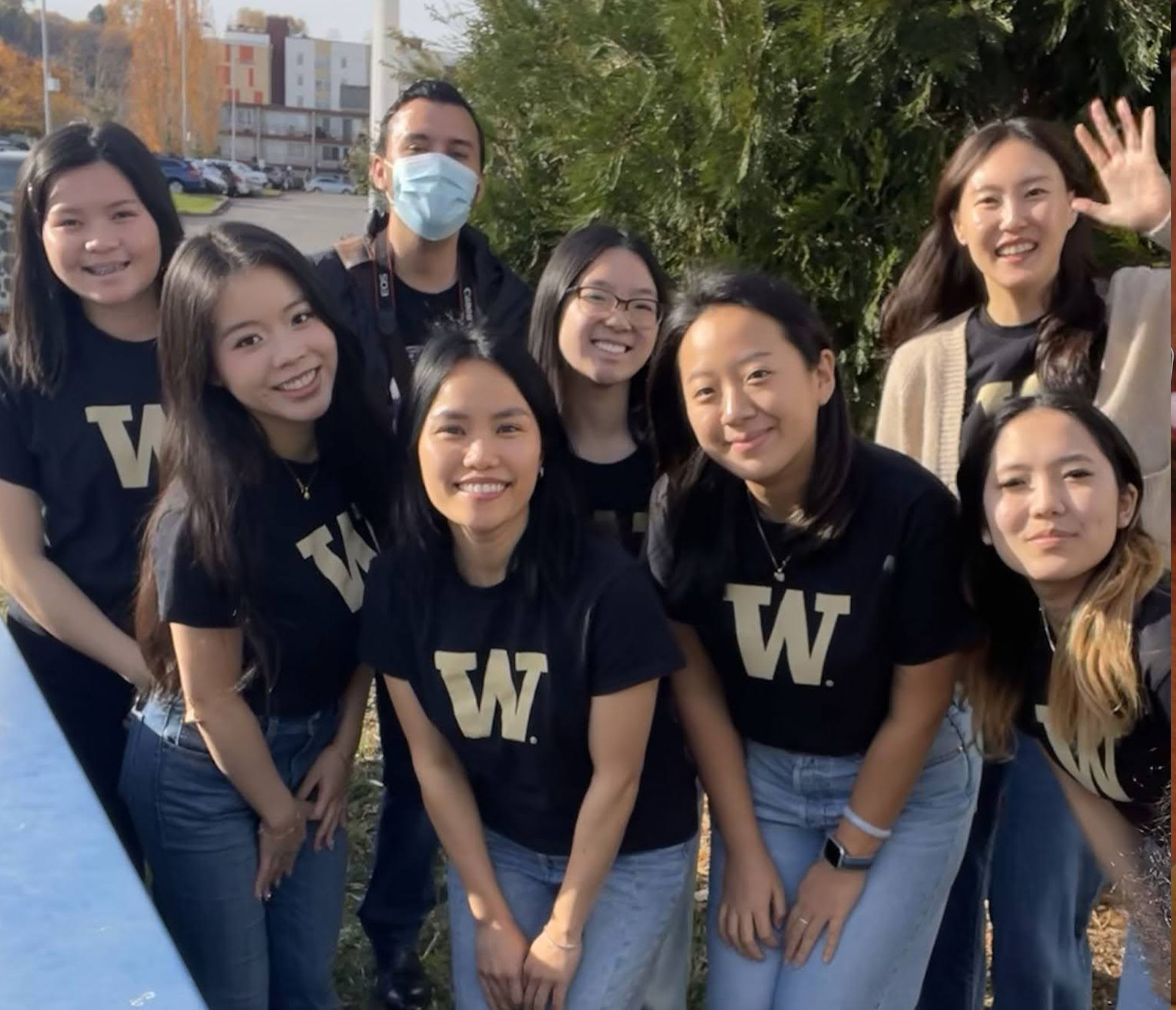
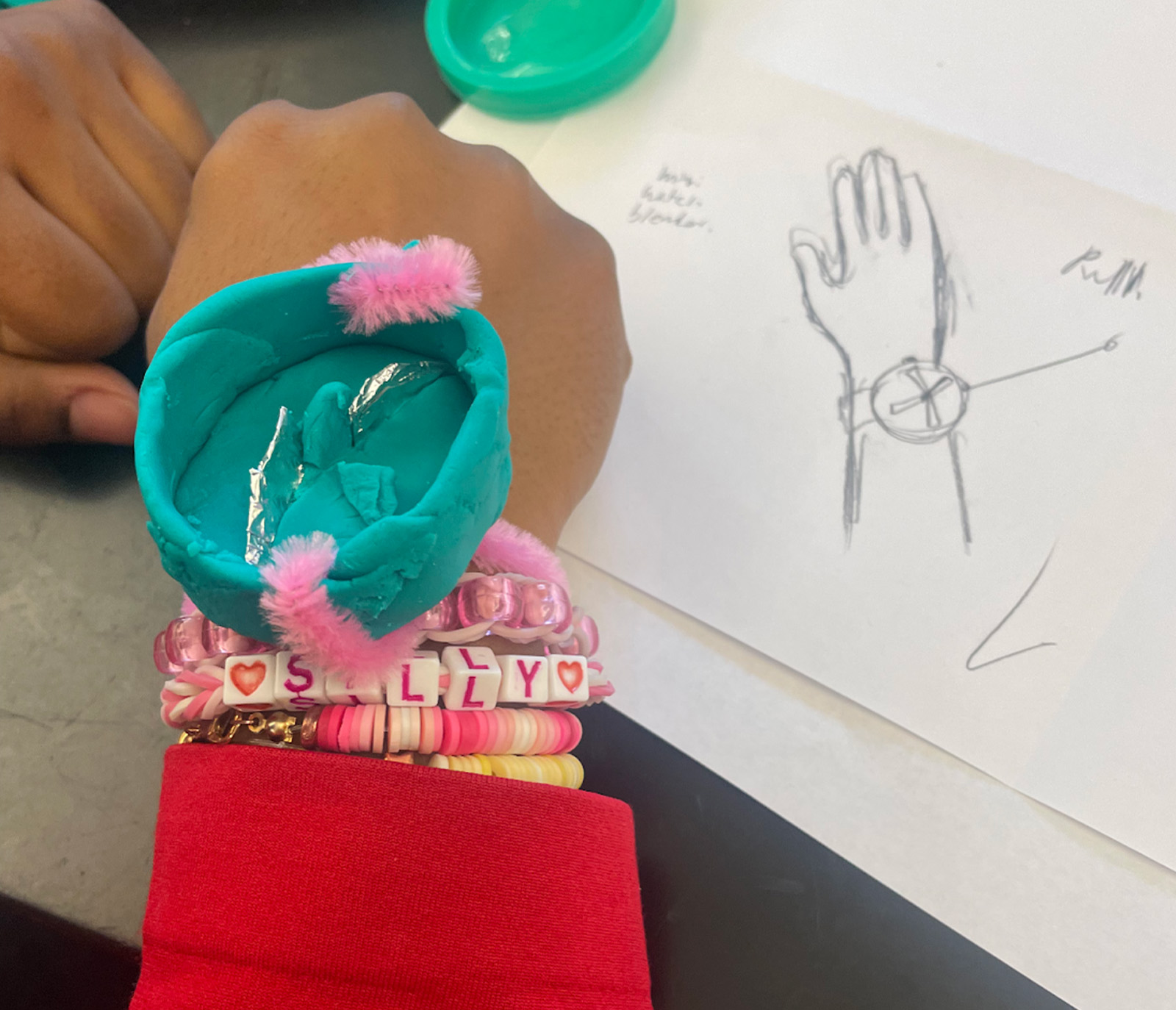
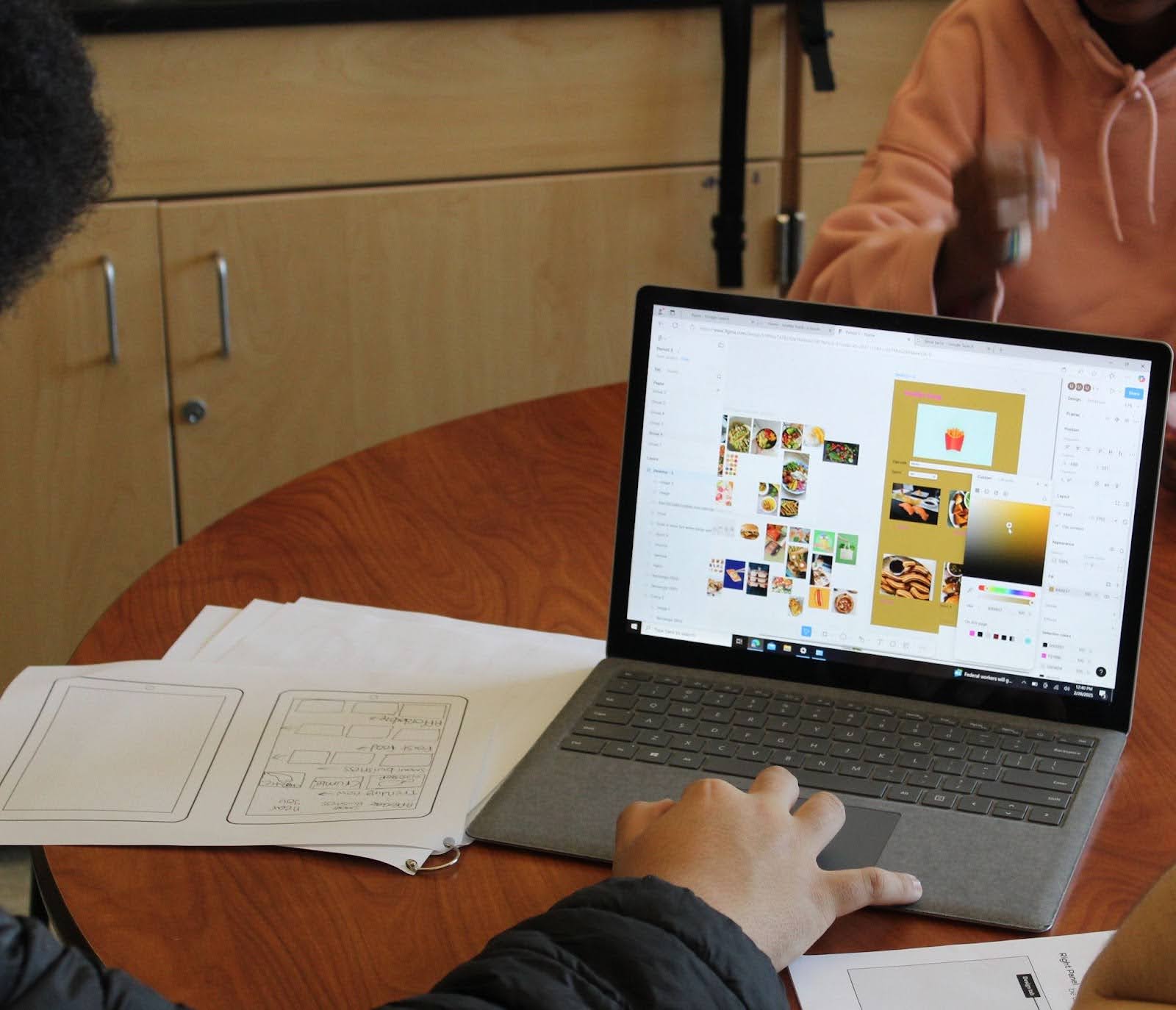
Photos from workshops at South Shore Middle School in 2024 and 2025.
Featured in the photos are HCDE students Sua Oh, Tinh Lou, Sophia Ling, Keilani Uehara, Mingjin Zhang, Lien Nguyen, Grace Bunarto, and Richard Parra from UW Riverways.
This thoughtful approach ensures that the workshops are age-appropriate, culturally-responsive, engaging, and relevant to the students’ existing curriculum. The HCDE outreach program has also been developing an outreach toolkit, which allows future outreach teams to organize school visits with adaptable curriculum models.
Mentorship is a core pillar of the outreach program. HCDE students work closely with HCDE and K-12 educators to design and deliver each session. In turn, HCDE students mentor younger students, introducing them to design concepts and guiding them through hands-on activities. This layered mentorship model provides an opportunity for students in schools across the state and UW students to connect and have conversations about how to continue their work after the workshop, college life, or career interests.
Why continued funding matters
Video: 2024 HCDE Alternative Spring Break Experience
Video created by Lily Yang. Interviews with students conducted by Andrew Davidson.
Despite its success, the outreach program is bracing for significant funding cuts. Continued funding is essential to maintain and grow this program, which is investing in the next generation of innovators, problem-solvers, and leaders.
HCDE’s collaborators at UW Riverways are funded by Northwest Earth and Space Sciences Pathways (NESSP) to fund student travel, lodging, teaching supplies, and help organize the work for STEM Alternative Spring Break and HCDE’s local K-12 outreach visits. Since NESSP is funded by NASA, instability in federal funding puts this support at risk.
This work requires an infrastructure to take learning beyond the access barriers of higher education – a community of students who value mentoring, training and curriculum design, teaching supplies, paid staff who are coordinating rapidly changing logistics of events, and most important of all, building and sustaining trust with our community partners. “All of our progress—the trust, the partnerships, the impact on students—has taken years to build,” said Arpita. “Without continued funding, that could all unravel quickly. Schools welcome HCDE back because they’ve had positive experiences and see the value in the program. If we stop showing up, those community relationships will suffer.”
How you can help support HCDE outreach
HCDE is grateful to its community partners, K-12 educators, students, staff, UW Riverways, and donors who have supported K-12 outreach to make this work possible. Supporting HCDE’s K-12 outreach program means investing in engineering education, fostering community, and empowering young people to shape their world. Here’s how you can help:
- Speak up: Share your stories about how UW outreach and education has benefited you and your community.
- Donate: Sustain outreach programming in HCDE. Your gift to the HCDE Outreach Fund supports HCDE K-12 outreach program, and Friends of Riverways Gift Fund supports the STEM Alternative Spring Break and HCDE’s K-12 outreach visits